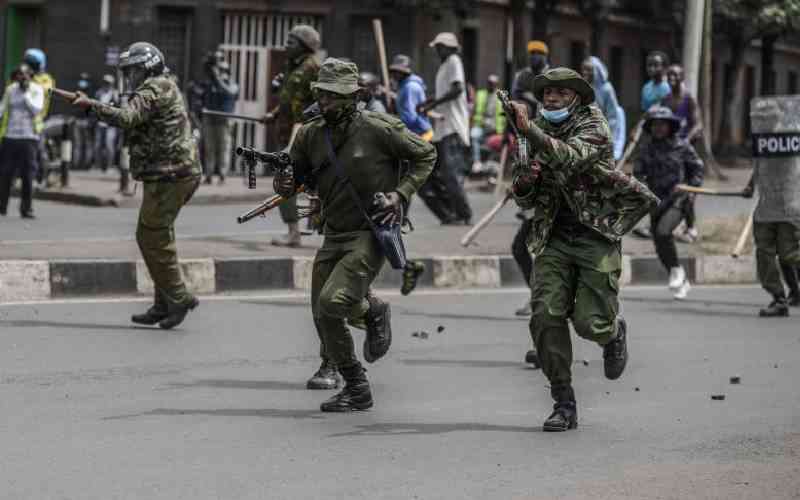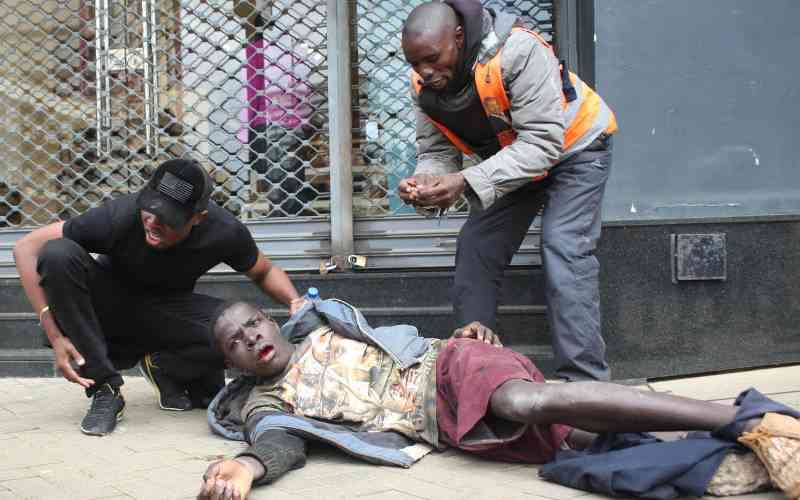
Her many years in the keyboard warrior trenches, defending the indefensible, are finally paying off.
And Esther Muthoni Passaris, Nairobi’s Women Representative, is getting the recognition she has long craved. This past week, she was crowned Defender-in-Chief of the Eliud Lagat Defence Forces for her gallant defence of the Deputy Inspector General of Police in the ongoing probe of Albert Ojwang’s murder in police custody.
Itching to share the news, Passaris posted a photo of herself in military regalia, freighted with medals, on social media. With a shaved head and less lipstick, she would have passed off for a North Korean general.
“With humility, I wear this as a symbol of dignity, duty, and determination,” she said about the uniform, which we wouldn’t be surprised if she didn’t know which force it belonged to.
It was a befitting tribute for the fast-typing Passaris, who has always shown determination in responding to whatever critic that strays into her X timeline. All that typing must hurt her fingers, a pain she doesn’t mind bearing.




The pain of seeing the police called out for their brutality hurts worse. And so Passaris has taken it upon herself to declare Lagat, whose name is circulating like a bad meme, free of crime in Ojwang’s mysterious killing.
She was with Lagat when news of the 31-year-old's death teacher broke, Passaris swore, and he seemed surprised. In the lawmaker’s world, being shocked in public is enough evidence of innocence.
“He was completely out of the loop. His composure reflected genuine surprise,” she would state. Move over, DCI, we have a new investigator in town. And she’s powered by vibes, Instagram filters, itchy fingers and misplaced loyalty.
Passaris is lending her skills, tweeting like a bot, to the police service, which she thinks has been slandered longer than necessary. Last week, as Nairobians poured into the streets protesting over police brutality, seeking answers over Ojwang’s death, a few opportunistic looters broke into a shop and made away with laptops. Cameras captured police officers helping themselves with some.
Naturally, Kenyans raised their eyebrows—because, again, this isn’t our first rodeo. We’ve seen uniforms and state badges used to loot, brutalise, and disappear things. There are the infamous images of uniformed officers walking out of the Westgate Mall with shopping bags during the 2013 attack.
Enter Passaris again, galloping in like a blue-checked crusader. “Let me clear the air,” she tweeted. “I spoke to the Nairobi Police Commander. The laptops weren’t stolen—they were RECOVERED.” Yes. Apparently, the officers were just good Samaritans doing God's work, carting off laptops for “safe custody” at Central Police Station.
It gets better. She said the owners would be “invited to identify them” because nothing says transparency like being invited to a police station to squint at your laptop while a cop tries to convince you it’s his cousin’s.
The National Police Service even backed up Passaris’ claims, proving once again that when Passaris speaks, it isn’t for Nairobi’s women—it’s for the boys in blue. Looking at her past, it is easy to see why.
Before she joined politics, Passaris was famous for her Adopt-a-Light company, which sought to deter night running in the city by erecting streetlights in every corner. She is still adopting, only this time it is the darkness that is Kenya’s police service.
Stay informed. Subscribe to our newsletter
The police couldn’t be in better hands. Besides her typing prowess, Passaris boasts superhuman strength, as the election official she dragged out of the Bomas of Kenya arena in 2022 would attest.
When she was elected Nairobi's women representative in 2017, Passaris gave no hints that she would turn into a government megaphone. She was full of promise, feminist slogans, and an “I will fight for the women and girls of Nairobi” energy. There were dreams that she would elevate gender discourse, amplify the voices of the vulnerable.
These days, she’s more likely to amplify police press releases and quote-tweet law enforcement than call out injustice. The irony is tragic. While young men die mysteriously in custody, and women and girls continue to suffer in silence, their elected representative is busy being the real-time spokesperson for the police instead of asking tough questions or demanding accountability.
Passaris, like many Kenyan MPs, developed the illness called “proximity to power”, through which reason dies a quiet death.